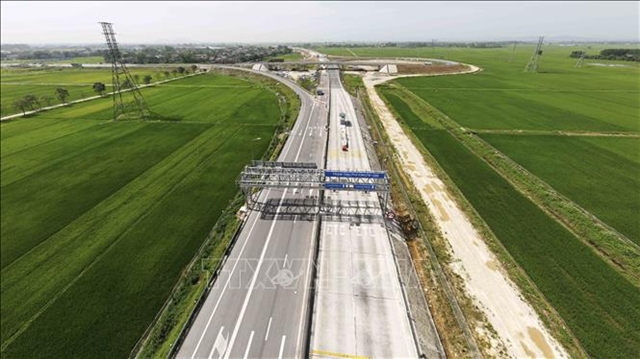 Economy
Economy


|
| A section of the North-South high-speed railway crossing Hà Tĩnh Province. — VNA/VNS Photo Hữu Quyết |
HCM CITY — Auto giant Trường Hải Auto Corporation has asked to build in the North-South high-speed railway in a communication it sent to the Government on May 26.
The company said it would invest US$61.35 billion, including 20 per cent ($12.27 billion) in equity, and the rest raised from Vietnamese and foreign credit institutions.
It wants a government guarantee for its loans and interest support for a 30-year period, and promises to complete the project over seven years in two phases.
Phase 1, lasting five years, will see the construction of two high-demand sections: HCM City–Nha Trang and Hà Nội–Hà Tĩnh. The two would become operational immediately upon completion.
Phase 2 would bridge the Hà Tĩnh–Nha Trang section.
THACO said this requires more time due to challenging geographic conditions.
It promises that ticket prices will remain affordable, and the Government will have the right to manage in situations related to national security.
THACO Industries, a subsidiary specialising in mechanical engineering and supporting industries, will cooperate with domestic enterprises to transfer technology for making locomotives, carriages and signalling and control systems.
New mechanical industrial zones would also be built in Bình Dương and Bắc Ninh provinces, THACO said.
The company pledged to develop transit-oriented development urban areas with various amenities near stations to promote socio-economic development.
THACO also promised not to transfer stakes in the project to foreign investors in the interest of national security.
It wants preferential policies from the Government, such as tax exemption for imported equipment that cannot be produced domestically.
The North-South railway will run 1,541 kilometres through 20 localities between Hà Nội's Ngọc Hồi Station with HCM City's Thủ Thiêm Station.
It will have 23 passenger and five freight stations and serve both civilian and military needs.
Construction is expected to start in 2027. VNS




